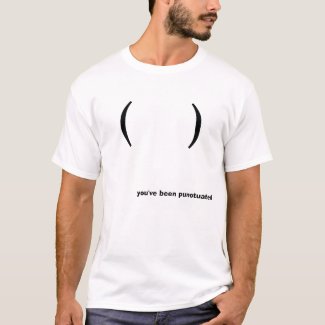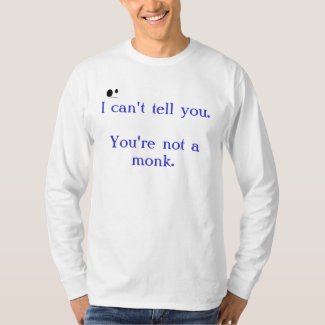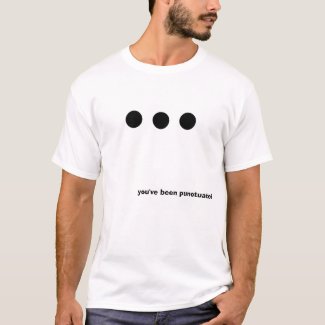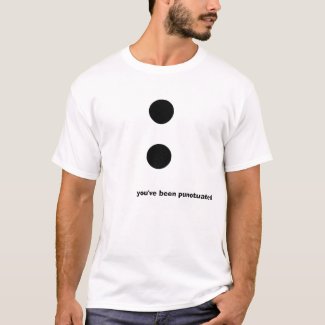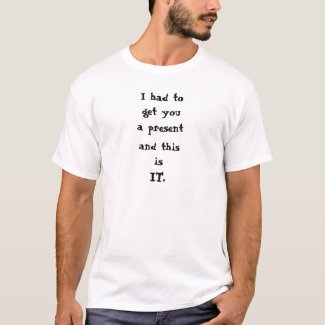 Yesterday, in addition to solving a problem that has bugged me for years and which, having solved, proves that I'm pretty much the smartest person in the world -- I'll tell more about that soon on Thinking The Lions, where I regularly best science-- I also began setting out how books and music and even TV can help us learn how to beat Mephistopheles. Today continues that theme withThe Best Triumph (?) Over The Devil... In Books.
Yesterday, in addition to solving a problem that has bugged me for years and which, having solved, proves that I'm pretty much the smartest person in the world -- I'll tell more about that soon on Thinking The Lions, where I regularly best science-- I also began setting out how books and music and even TV can help us learn how to beat Mephistopheles. Today continues that theme withThe Best Triumph (?) Over The Devil... In Books.I was considering this morning the problem of the "unreliable narrator," something I began thinking of because of today's nominee as well as because of cell phones and doctors and "science," which at this point ought to just simply have those quotes surgically attached.
The "unreliable narrator" is a narrator with a compromised point of view -- he or she is a person telling the story you're reading (or watching, I suppose) but for some reason, you as the reader (or watcher) cannot entirely believe them. The narrator may be a child, or have mental problems, or he or she may just be untrustworthy, something that you usually learn early on.
The unreliable narrator is an author's way of making sure that you're always standing on sand instead of rock; the ground can shift from under you in subtle or obvious ways. A perfect example of the "unreliable narrator," one that stands atop of all art as the pinnacle of this literary creation, is Emperor Cuzco from the Disney cartoon
The Emperor's New Groove. [SPOILER ALERT! If you are a small child who likes to watch Disney cartoons, or a small child's parent who also likes to watch Disney cartoons and uses those small children as an excuse to watch Disney cartoons, say on a Wednesday night, telling yourself that you're just spending time with your Babies! instead of cleaning up but secretly you just want to get to the point where [SPOILER ALERT INSIDE A SPOILER ALERT] Hercules beats up the Titans because you love that part, not that I'm thinking of anyone in particular, you may want to skip the next part]Emperor Cuzco begins the story in
The Emperor's New Groove trapped in llama form and moping in the rain, while he tells us in a voiceover that instead of being a llama, he used to be the Emperor until a bunch of people came and ruined his life.
Then, as it turns out, the people were not solely responsible for it because [HERE'S THE SPOILER PART] he's sort of a jerk and has to rethink his priorities, leading to a minor argument with himself.
Yes, the movie is even better than it sounds on paper. What Cuzco, above all other literary creations ever, shows us is that the "unreliable narrator" can make a relatively straightforward story better because it puts the reader or watcher into the shoes of the narrator, letting the reader experience what the narrator felt, a little. As Cuzco grows as a person, we, too, grow as a person. We don't get a mouthful of bats, as he did, but we have some empathy.

What Cuzco does
not tell us is the insidious degree to which the "unreliable narrator" has, in fact, become the
only narrator in our society. While literature and movies and TV still use narrators that can be safely relied on (such as
Morgan Freeman, who most recently has appeared as the voice of God in Olympic commercials), society itself is moving more and more from reliable narrators and into
unreliable narrators -- people that we can't quite trust, in part because they tell us up front not to trust them (and then society goes and trusts them anyway.)
Here's what I'm talking about: There is a "doctor" who should probably have his license stripped and be ridiculed in society, and instead, he was featured on CNN Headline News this morning as though he was a rational, sane person. That "doctor's" name is Ronald Herberman, and I feel sorry for any patients of his, as they are probably sore from all the leeches and yet
still can't get those pesky demons out of their humors.
Ronald Herberman, the ersatz "doctor," issued a warning that people should not use cell phones because there's a risk of brain cancer. Ronald Herberman claims that he does not have to worry about all of those studies that have been performed which show
no connection between cell phones and brain tumors; he does not have to worry about that for two reasons:
First, Ronald Herberman says that he's relying on other "early data." I have an idea what that "early data" is -- it's this Youtube video, I suspect:
Those videos were released a while ago
without the clearly marked advertising, and became viral hits, only
to subsequently be revealed as advertisements put out by a company that makes headsets. Only Ronald Herberman missed that one, it seems, but it wouldn't have mattered, because whatever Ronald Herberman was relying on, it wasn't "science."
Herberman doesn't have time to rely on science, he says, and so he advocates ignoring all the facts and simply running around with our heads cut off.
Herberman presumably would not mind me speculating that perhaps
he is doing this because
perhaps (this is pure speculation)
he has been paid by some headset-making company; presumably, Herberman doesn't mind people just making stuff up to make a point (which is what I'm doing when I speculate that Herberman got paid to announce this stuff and is in it for money; just speculating) if they don't have time to research things.
The real point of all this is not that some nutjob supposed doctor (I don't have
time to wait for the facts about Herberman's sanity and/or credentials, so I have to go with my heart) thinks we shouldn't talk on cell phones unless we're wearing tinfoil; the real point of this is that CNN Headline News ran with this, proving that society is in the grip of many, many, unreliable narrators. We in the US are living in a time when
bloggers can simply begin making stuff up and hope it becomes news, when news networks spin stories to promote their ideologies, when celebrities and
newsmakers are simply taken at their word against all factual evidence to the contrary, and when "doctors" can ignore
science and give us advice based on... I don't know, their gut feeling, I guess.

That's why this category is called
The Best Triumph (?) Over The Devil... In Books. I called it that because the nominee,
A Good And Happy Child, uses an unreliable narrator to make it even more unsettling and have the story seep into your mind and not let go, creeping me out even as I think about it today here in broad daylight at 9:40 a.m., and because [SPOILER ALERT!
This entry is chockablock with spoilers! It's spoiler-rific!] the way the book ends makes it clear that... it hasn't ended. Unless it has. Ended, that is.
A Good And Happy Child, by Justin Evans, begins with the narrator, George, as an adult, explaining that he cannot bring himself to pick up his newborn baby. He begins therapy to deal with the problem, and is encouraged to write down memories of his childhood. As he does that, he focuses on the period right after his father's death.
His father died while on some sort of mysterious trip to Central America, and as the story progresses, it appears that his father died trying to perform exorcisms and fighting the devil.
Appears is the key word, because George wasn't privy to all the details as a child and this is years later, when he's trying to reconstruct it all.
And
appears is also key because as he remembers his childhood, George also remembers "Friend," a shadowy, spirit type of creature that came to him at first in dreams and then while he was awake, and who George's adult acquaintances tell him is a demon or the devil-- possibly the same one that killed his father. It all ends up with various poltergeisty things going on while George is committed for a period of time.
That is an unreliable narrator, squared: George is remembering, years later, things he was only dimly aware of as a child, and remembering them while in the care of a psychiatrist and upset, and also George just might have been possessed.

I'm not going to wreck it any more than I might have for you; what I pointed out [SPOILER ALERT
redux] is that at the end of the story, the story
doesn't seem to end. Not in the "
aw, man he's just setting it up for a sequel way." That would suck. It doesn't seem to end in the manner of how
life doesn't seem to end -- just as alcoholics and cancer patients aren't cured but only in remission, just as divorces happen but relationships of one sort continue, just as life continues to go on, at the end of
A Good And Happy Child, the story is not over and not resolved and the reader is left more or less just chilled to the bone and trying (in a very, very good way) to make sense of it all.
Because this nomination is
The Best Triumph (?) Over The Devil... In Books, I can [THIRD TIME IS THE CHARM FOR SPOILERS, RIGHT?] let you know that George
does triumph. Unless he
doesn't, because the havoc wreaked on his life as a child has now spilled over into his adult life, and is spilling over into his newborn child's life, too, in a fantastic way.
Unreliable narrators have a way of doing that; they have a way of spilling over from books into life, and affecting us more and more and more. People just begin believing things because they heard them or read them,
no matter how unreliable the source is. The millions of tiny details in our lives, the bits and pieces of information that pack into our brains over days and weeks and months and years, have to be formed into something by us, some system of beliefs and rules for life and style. That's all great as long as the information that we get is truthful. When the information that we get is tainted -- when we believe that we are crazy or possessed, or when we believe that we can make medical recommendations based on advertisements instead of science -- things start to fall apart and bad things happen and then get worse. It's not clear to me that we're winning that battle (hence the (?) in the title.)
Unlike what can be learned from
beating up on The Devil from music, I'm not crazy about the lesson
A Good And Happy Child teaches us, which is that you can never be sure that the devil is down for the count. But at least the book was incredible. As society spends more and more time listening to the would-be doctors and less and less time listening to the truth, at least I'll have the book to fall back on and read while society falls apart around me.
 Click here to see all the other topics I’ve ever discussed!
Click here to see all the other topics I’ve ever discussed!
Monk:









